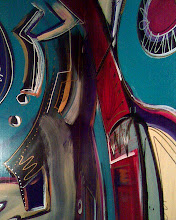WHAT IS A FRIVOLOUS LAWSUIT?
On Febrauary 3, I attended the second day of a very interesting conference on the costs of the legal system at the University of Texas School of Law. A variety of academics with training in law and economics presented studies they had done which belied much of the popular wisdom about the expense of the American civil justice system.
The topic of frivolous suits -- whether they are in fact a problem, and whether measures designed to discourage them (sanctions against lawyers and clients who file them) work -- was discussed. In the course of the discussion, I realized that the law's (and presumably most lawyers') definition of a frivolous suit and that of the seemingly legion lay critics are quite different. I also realized that this difference in definitions is the source of much "signal noise" in attempts by trial lawyers (like me) to explain that frivolous lawsuits are not a big problem. The law defines a frivolous suit, subject to sanctions, as one not justified by the facts, the law, or a good faith argument for change in existing law. For example, Federal Rule of Civl Procedure 13, governing standards for pleadings filed in civil cases, including the suit itself, provides, in part:
(2) the claims, defenses, and other legal contentions therein are warranted by existing law or by a nonfrivolous argument for
the extension, modification, or reversal of existing law or the establishment of new law;
(3) the allegations and other factual contentions have evidentiary support or, if specifically so identified, are likely to have evidentiary support after a reasonable opportunity for further investigation or discovery;
Lay people, on the other hand, seem to define frivolous lawsuit in terms of either a trivial injury -- suing over a hangnail -- or what they perceive as an improper shifting of blame from an injured party to the defendant. The most famous example of the latter is, of course, the McDonald's coffee case. We can leave aside the "trivial injury" cases; except in popular (and inaccurate) myth, they do not exist. Even after you clean up the tremendous inaccuracies in the popular version of the McDonald's case (a good account of the actual facts can be found here), many conservative folks still disagree with the result, on the grounds that anything that happens to you when you spill coffee on yourself is solely your own fault, irrespective of how hot the coffee was. Thus they define even the idea of suing over spilled coffee as frivolous.
The law is a set of generalities designed to govern specific situations. One such generality is that makers of unreasonably dangerous products ought to pay for the consequences when those unreasonable dangers cause injury. We have judges and juries to apply those generalities to specific disputes. Twelve people, not under hypnosis, not having taken stupid pills, decided that the McDonald's coffee, which the company's own expert admitted was "unsafe for human consumption" was unreasonably dangerous. What's frivolous about that?
